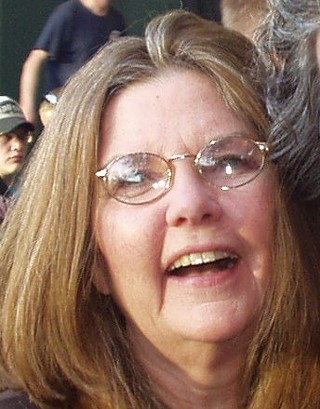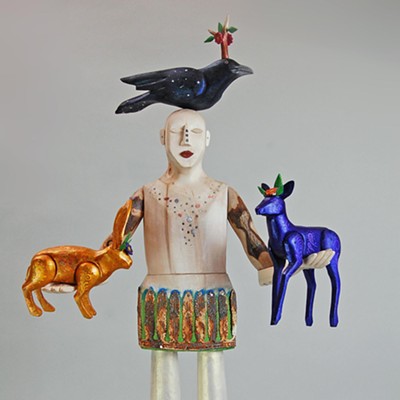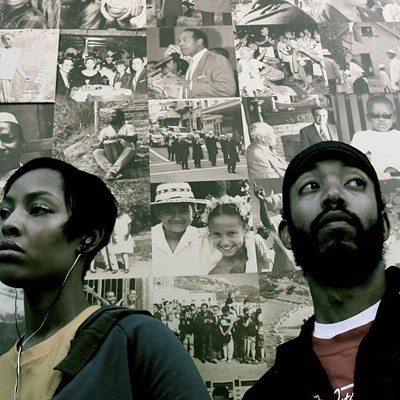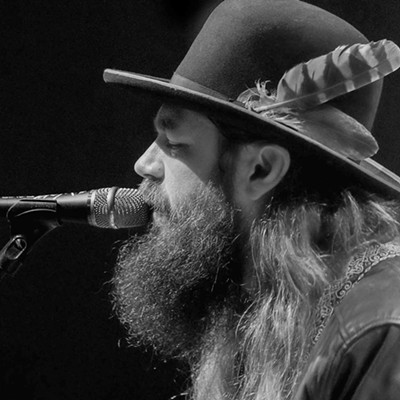"I remember there was such a wonderful energy, and we had such a great time in Tucson," Merritt says. Her 2004 album, Tambourine, had been nominated for Best Country Album, and she was heading straight from Tucson to the Grammy Awards.
"Subsequently, a lot of things changed for me," she says with some understatement.
In the interim, she's lost her label, left her North Carolina home for New York City, and spent a lot of time in Paris, sorting herself out and writing new music.
Her February release, Another Country, has critics once again singing the praises of her effortlessly supple vocals and intelligent songwriting. Esquire magazine named hers the Best Female Voice for 2008, and she wowed the audience as a surprise guest at the I'm Not There Bob Dylan tribute concert. In fact, The New York Times called hers "the night's purest voice." She now hosts her own NPR radio show, The Spark, in which she interviews well-known painters, poets and musicians about their inspirations.
Most importantly, though, she has a fresh outlook, but she had to flee to find it. "I was definitely asking myself a lot of hard questions about being on the road and whether my life was going in the right direction," she explains. "It was a time when I was feeling my way; I wasn't thinking my way: 'I'm a grown woman; why don't I take myself to Paris? Why not?'" So she rented an apartment with a piano and stayed for three months.
What she gained there was a better sense of her place in the world and what's really important to her. "You know, little things are magical when you're really open to the world, and you don't have any really big, false expectations. I think that's the best kind of happiness." It's a sentiment she sums up in the song, "I Know What I'm Looking for Now," from Another Country.
Merritt has always been unusually grounded for an artist whose talent captured the hearts of critics worldwide, and made fans of the likes of Emmylou Harris and Lost Highway records' Frank Callari, even before her first release, when she was still playing in songwriters' circles.
She was Callari's first signing after he joined Lost Highway Records, and he stewarded her through her charming, near-flawless debut, Bramble Rose, then on to what she rightly refers to as her "barn burner," Tambourine. That record broke her out of obscurity, illustrating her command of a range of genres. Its crackling pop entries, and the rockin' soul force of the title song were particularly explosive live. It wasn't the kind of thing you'd expect to hear on country radio, the occasional train beats and plaintive pedal steel notwithstanding.
Unfortunately, the theory goes, the taint of country also prevented other radio stations, and potential fans, from listening to it. So despite her getting the Grammy nomination, and appearing on all the late-night TV shows and garnering critical praise, Tambourine sold less than 100,000 copies. In a move that amounted to an admission that they didn't know what to do with her, Lost Highway let her go.
Merritt was exhausted. She felt she'd given it everything she had, and for a time even considered finding another line of work.
"That was certainly the longest time I've ever been on the road," she explains. "It's so easy to feel disconnected. Even in one day, you can feel exhilarated and that you connect with people in all the right ways, and then other times, you find yourself in the basement of some club going, 'Oh, this is so silly. I'm not any good. I'm not doing anything to help the world, feed the hungry or mend the sick or anything like that.'"
Paris turned out to be the perfect antidote. Merritt was surprised how naturally and organically writing came to her there. She'd thought she had nothing more to say. "I really did feel like a stranger," she says. "I felt a little bit untranslatable to myself and to the people around me. I think Another Country is really my own attempt to figure it all out and to make some kind of bridge back to the world. I think it's the most personal record that I've made."
After a few more trips to Paris, and several months working out arrangements and recording with her band and producer George Drakoulis (The Black Crowes), Merritt had an album that the venerable Fantasy label was happy to pick up. She was back in business.
Merritt says the production focused on intimacy. "I wanted it to be a very intimate affair where I was just talking to one other person. And sonically, I wanted it to be an extended hand, an invitation into a certain world, my world."
But, she adds, "A lot of these songs really bloom and become really big with the band, like, 'I Know What I'm Looking for Now' and 'Morning Is My Destination.' It seems like we're always trying to take things to the best place that we can, so we're not just duplicating the album and patting ourselves on the back. We always want to bring emotional and musical intensity."
As personal as Another Country is, Merritt justifiably resists the comparisons to Joni Mitchell that have clung to her since her debut, but she concedes: "I certainly thought about Joni Mitchell fleeing to Europe and making the songs for Blue. But I just felt really free being outside of my own language and culture, and stepping outside of my life altogether. I guess sometimes, you have to go very far from home and get very lost to realize that life is all around you and shouting at you to take its many good things with you."















